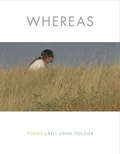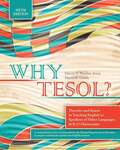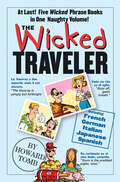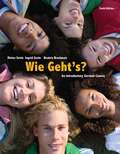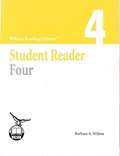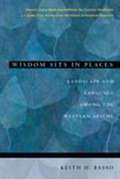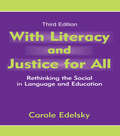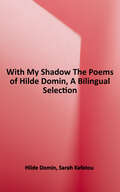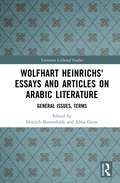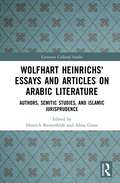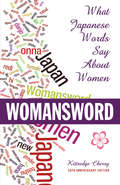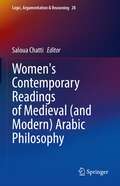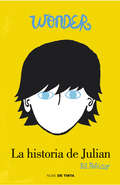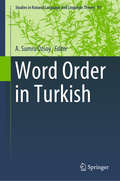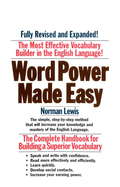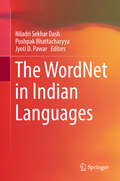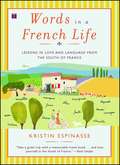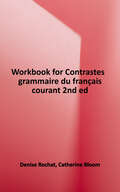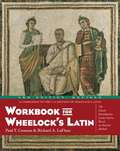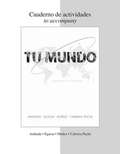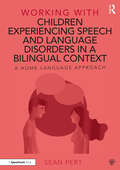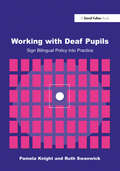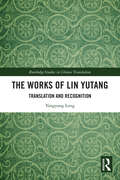- Table View
- List View
WHEREAS: Poems
by Layli Long SoldierThe astonishing, powerful debut by the winner of a 2016 Whiting Writers' AwardWHEREAS her birth signaled the responsibility as mother to teach what it is to be Lakota therein the question: What did I know about being Lakota? Signaled panic, blood rush my embarrassment. What did I know of our language but pieces? Would I teach her to be pieces? Until a friend comforted, Don’t worry, you and your daughter will learn together. Today she stood sunlight on her shoulders lean and straight to share a song in Diné, her father’s language. To sing she motions simultaneously with her hands; I watch her be in multiple musics.—from “WHEREAS Statements”WHEREAS confronts the coercive language of the United States government in its responses, treaties, and apologies to Native American peoples and tribes, and reflects that language in its officiousness and duplicity back on its perpetrators. Through a virtuosic array of short lyrics, prose poems, longer narrative sequences, resolutions, and disclaimers, Layli Long Soldier has created a brilliantly innovative text to examine histories, landscapes, her own writing, and her predicament inside national affiliations. “I am,” she writes, “a citizen of the United States and an enrolled member of the Oglala Sioux Tribe, meaning I am a citizen of the Oglala Lakota Nation—and in this dual citizenship I must work, I must eat, I must art, I must mother, I must friend, I must listen, I must observe, constantly I must live.” This strident, plaintive book introduces a major new voice in contemporary literature.
Why Tesol? Theories And Issues In Teaching English To Speakers Of Other Languages In K-12 Classrooms
by Eileen Ariza Maria Coady BedardWhy TESOL? Fifth Edition, provides classroom and preservice teachers with a knowledge base to effectively teach in culturally and linguistically diverse classrooms in today’s global environment. It provides in depth theoretical background, legal information, and application for teachers to address the needs of English learners. Why TESOL? is written so teachers from various backgrounds and experiences can readily apply ESOL concepts to their individual mainstream classroom settings. FEATURED TOPICS Describes the legal rights of English language learners (ELs); provides an historical overview of laws (e.g., ESSA) in the United States that affect the education of EL students, and provides a clear classification of English as a second/new language (ESL/ENL) programs available in the United States. Helps readers understand the complexities of acquiring an additional language by providing a basic grounding in the core areas of linguistics and other related areas, such as non-verbal communication, dialectal variation, English language use, development, translanguaging, and literacy. Discusses first and second/new language theories and models, including processes and non-linguistic factors that affect second or additional language acquisition. Includes national statistics that illuminate the global nature of American society in the twenty-first century. Includes classroom experiences of new and experienced teachers, and provides examples adapting teaching strategies to better measure the academic success of second language learners in mainstream classrooms. Includes new chapters on literacy development, and family engagement for EL students. INCLUDES learning objectives for each chapter, discussion and reflection questions, and activities. Each chapter also provides web resources and links for extended learning.
The Wicked Traveler: 8-copy Counter Display (Wicked Travel Ser.)
by Howard Tomb<P>Respond to Japanese Noh theater like a native: Kazoku sorrote no seppuku ga yokatta. (“I love the part where the whole family disembowels themselves.”) <P>Speak to homicidal Parisian taxi drivers in a language they’ll understand: Ou avez-vous appris à conduire? <P>En Italie? (“Where did you learn to drive? Italy?”) <P>Discuss Italian olive oil with the proper degree of reverence: Un assaggio ti dice che le olive sono maturate di fronte ad una cattedrale. (“One taste tells you the olives grew in full view of the cathedral.”) <P>Establish privacy needs in Mexico: Preferiría una habitación sin alacranes. (“I’d prefer a room without scorpions.”) <P>With seven titles and over 1.2 million copies in print, Howard Tomb’s Wicked phrase book series is the fiendishly irreverent—and very successful—collection that gives travelers the words they wish they could utter while, say, attempting to find the exit of the Louvre or facing a plate of fugu (poisonous blowfish) in Japan. Now, the five most popular Wicked books—Italian, French, Japanese, German, and Spanish— have been updated and compiled into The Wicked Traveler. <P>Because, as Howard Tomb writes in his new introduction: “Every country is different, but all foreign places have one thing in common: they’re weird.”
Wie Geht's?
by Dieter Sevin Ingrid Sevin Beatrix BrockmanFocused on building linguistic skills and comprehension through creative introductions to contemporary life and cultures in German-speaking countries, WIE GEHT'S? Tenth Edition exposes students to the German language, while encouraging cultural awareness and the acquisition of a functional vocabulary that effectively prepares them to continue their study of German.
Will You Please Be Quiet, Please? (Mandarin Edition)
by Raymond CarverWith this, his first collection of stories, Raymond Carver breathed new life into the American short story. Carver shows us the humor and tragedy that dwell in the hearts of ordinary people; his stories are the classics of our time. 请你安静些,好吗? 是卡佛文学创作的处女作 是卡氏风格的奠基之作 为其一生的创作主旨设定了基调 同时也是其第一本具有广泛影响力的短篇小说集 它于1976年在美国甫一出版即获好评 并于1977年被题名国家图书奖 卡佛曾说过 "对大多数人而言 人生不是什么冒险 而是一股莫之能御的洪流 "在这本短篇小说集里 我们所看到的 就是这样的人生片段 它写的完全不是冒险奋战的英雄人物 而是我们身边毫不起眼却终日陷在生活琐事,人际关系难题里的小人物 卡佛以极简的文字 将生活中最不起眼的时刻写得朴实而暗含张力 他的风格影响了当今许多名家
Williams Hebrew Syntax (3rd Edition)
by John C. BeckmanAlthough the morphology and lexicon of Hebrew are reasonably well understood, its syntax has long been a neglected area of study. Syntax, the relationship of words to one another, forms, together with morphology, the material of grammar. Its relative importance varies according to the language considered. This is particularly true of word order, for when an inflected language loses its case endings, word order assumes many of the functions of the former cases. <P><P> This outline by Professor Williams re-emphasizes the significance of word order in Hebrew. Developed over fifteen years in a formal course on Hebrew syntax at the University of Toronto, it treats the syntax of the noun, the verb, particles and clauses, with a selection of illustrative examples. Its contents are based on classical Hebrew prose, but some account is also taken of the deviations in later prose and poetry. In this new edition English translations have been provided for all Hebrew phrases and sentences, and the bibliography has been expanded.<P> Advisory: Bookshare has learned that this book offers only partial accessibility. We have kept it in the collection because it is useful for some of our members. To explore further access options with us, please contact us through the Book Quality link on the right sidebar. Benetech is actively working on projects to improve accessibility issues such as these.
Wilson Reading System: Student Reader Four (Wilson Reading System)
by Barbara A. WilsonStudents gain accuracy and automaticity by practicing skills with a substantial amount of controlled text. Word lists, sentences, and stories are 98% decodable throughout the entire 12 Steps.
Wisdom Sits In Places: Landscapes and Language Among the Western Apache
by Keith H. BassoFour essays recount stories Western Apaches tell about the landscape. Includes comments from a cultural anthropologist.
With Literacy and Justice for All: Rethinking the Social in Language and Education (Language, Culture, and Teaching Series)
by Carole EdelskyThe third edition of With Literacy and Justice for All: Rethinking the Social in Language and Education continues to document Carole Edelsky's long involvement with socially critical, holistic approaches to the everyday problems and possibilities facing teachers of language and literacy. This book helps education professionals understand the educational/societal situations they are dealing with, and literacy instruction and second language learning in particular contexts. Edelsky does not offer simplistic pedagogical formulas, but rather, progressively works through differences and tensions in the discourses and practices of sociolinguistics, bilingual education, whole language, and critical pedagogy--fields whose practitioners and advocates too often work in isolation from each other and, at times, at cross purposes. In this edition, what Edelsky means by rethinking is improving and extending her own views, while at the same time demonstrating that such rethinking always occurs in the light of history. The volume includes a completely new Introduction and two entirely new chapters: one on reconceptualizing literacy learning as second language learning, and another on taking a historical view of responses to standardized testing. Throughout, in updating the volume, Edelsky uses a variety of structural styles to note contrasts in her views across time and to make the distinction clear between the original material and the current additions. This edition is a rare example of a scholarly owning-up to changes in thinking, and a much needed demonstration of the historically grounded nature of knowledge. As a whole, the third edition emphasizes recursiveness and questioning within a deliberately political framework.
With My Shadow: The Poems of Hilde Domin, A Bilingual Selection
by Hilde Domin“These translations and poems are full of the refugee’s loss and longing, made infinitely richer by Kafatou’s love for the poet and poems. This is a deeply loving, compassionate collection of poems, remaining anchored, ultimately, in the exile’s intertwined desire and nostalgia for home.” —The Massachusetts Review Not to tire / but to hold out your hand / gently / as to a bird / to the miracle This bilingual edition of the poems of Hilde Domin, an outstanding lyric poet of exile and return, brings her work to English-speaking readers for the first time. Hilde Domin fled Nazi Germany when, as a Jew, she was no longer safe there. For many years she lived in Italy and the Dominican Republic, where she encountered modernist currents in Italian and Spanish poetry. Returning permanently to Germany in the mid-1950s, she quickly found recognition as a poet of memory and reconciliation. For the rest of her long life she wrote and spoke in a tone poised between vulnerability and trust, on behalf of moral and civic values worth living for. <p><p>As Sarah Kafatou writes in her Introduction, Domin “is always frugal: she reworks and transforms her repertoire of metaphors, images, themes, and ideas again and again, extending and refining, never explaining too much. Her lyric sensibility is concise, her syntax and vocabulary are simple and apt, her short lines break on the phrase, and she has an uncanny ability to hit the right note at exactly the right moment, according to the rhythm of the breath.” Domin writes of “people like us we among them,” providing a voice for victims of persecution everywhere. Today, with refugee populations on the move throughout the world and with rising intolerance and polarization, these poems of conscience, and courage discovered in desperation, will speak directly to every reader.
Wolfhart Heinrichs´ Essays and Articles on Arabic Literature: General Issues, Terms (Variorum Collected Studies)
by Hinrich Biesterfeldt Alma GieseWolfhart Heinrichs’ Essays and Articles on Arabic Literature: General Issues, Terms is the first of two volumes that showcase a great number of Heinrichsʼ writings on his central field of research: Arabic literature. This volume specifically looks at poetry and rhetoric, and their indigenous theories and terminologies.Wolfhart Heinrichs (1941-2014) was James Richard Jewett Professor of Arabic at Harvard University. He is remembered as a significant adviser to Fuat Sezginʼs fundamental Geschichte des arabischen Schrifttums; as an editor of and contributor to the Encyclopaedia of Islam, Second edition; and, most importantly, as an author of many independent studies on Arabic literature, many which were groundbreaking in the history of Arabic philology. He is also known for his studies on Semitic linguistics and Islamic jurisprudence.This volume collects relevant bibliographical data, offers an introductory essay on the author by his distinguished student Michael Cooperson (UCLA), and provides a selection of Wolfhart Heinrichs’ essays. The articles in this volume deal with general issues in the field that are central to pre-modern Arab and Islamic culture, and their concepts and terminologies. An index of classical authors, book titles, and technical terms concludes the volume.This volume and the accompanying volume will appeal to students and researchers in the field of Arabic and Islamic Studies, and particularly to those interested in Arabic literature.
Wolfhart Heinrichsʼ Essays and Articles on Arabic Literature: Authors, Semitic Studies, and Islamic Jurisprudence (Variorum Collected Studies)
by Hinrich Biesterfeldt Alma GieseWolfhart Heinrichs’ Essays and Articles on Arabic Literature: Authors, Semitic Studies, and Islamic Jurisprudence is the second of two volumes that showcase a great number of Heinrichs’ writings on Arabic literature, Semitic Studies, and Islamic jurisprudence.Wolfhart Heinrichs (1941-2014) was James Richard Jewett Professor of Arabic at Harvard University. He is remembered as a significant adviser to Fuat Sezginʼs fundamental Geschichte des arabischen Schrifttums; as an editor of and contributor to the Encyclopaedia of Islam, Second edition; and, most importantly, as an author of many independent studies on Arabic literature, many of which were groundbreaking in the history of Arabic philology. He is also known for his studies on Semitic linguistics and Islamic jurisprudence.This volume collects relevant bibliographical data, offers an introductory essay on the author by his distinguished student Michael Cooperson (UCLA), and presents reprints of his articles and essays. These include the remainder of Heinrichsʼ contributions to Arabic literature, dealing with a number of classical Arabic authors, Semitic studies in general (among them Aramaic and Neo-Aramaic), and Rhetoric as used in Islamic jurisprudence and in the game of scholarly debate (jadal). An index of classical authors, book titles, and technical terms concludes the volume.This volume and its companion will appeal to students and researchers in the fields of Arabic literature, Semitic Studies, and Islamic jurisprudence.
Womansword: What Japanese Words Say About Women
by Kittredge Cherry"A very graceful, erudite job . . . extraordinarily revealing."-The New York Times Thirty years after its first publication, Womansword remains a timely, provocative work on how words reflect female stereotypes in modern Japan. Short, lively essays offer linguistic, sociological, and historical insight into issues central to the lives of women everywhere: identity, girlhood, marriage, motherhood, work, sexuality, and aging. A new introduction shows how things have-and haven't-changed.Kittredge Cherry studied in Japan and has written about the country for Newsweek and the Wall Street Journal. She has a journalism degree from University of Iowa.
Women's Contemporary Readings of Medieval (Logic, Argumentation & Reasoning #28)
by Saloua ChattiThis book explores a large variety of topics involved in Arabic philosophy. It examines concepts and issues relating to logic and mathematics, as well as metaphysics, ethics and aesthetics. These topics are all studied by different Arabic philosophers and scientists from different periods ranging from the 9th century to the 20th century, and are representative of the Arabic tradition. This is the first book dealing with the Arabic thought and philosophy and written only by women. The book brings together the work and contributions of an international group of female scholars and researchers specialized in the history of Arabic logic, philosophy and mathematics. Although all authors are women, the book does not enter into any kind of feminist trend. It simply highlights the contributions of female scholars in order to make them available to the large community of researchers interested in Arabic philosophy and to bring to the fore the presence and representativeness of female scholars in the field.
Wonder. La historia de Julian
by R. J. PalacioWonder. La lección de August ha recordado a miles de lectores la importancia de ser amable. Pero este no es un libro sobre August, un niño que quiere ser normal a pesar de su aspecto, sino sobre Julian. ¿Qué motivos tiene Julian para odiar a August?¿Será capaz de asumir sus errores y empezar de nuevo? Wonder. La historia de Julian trata sobre el niño que peor se porta con Auggie. No soporta verlo, no soporta que sea amigo de Jack, no soporta que esté en su colegio... y no es capaz de darse cuenta del impacto que sus actos pueden tener en los demás. Provocadora, sorprendente y emotiva, Wonder. La historia de Julian deleitará a los lectores de Wonder. La lección de August... y a los que todavía no la han leído.
Word Order in Turkish (Studies in Natural Language and Linguistic Theory #97)
by A. Sumru ÖzsoyThis volume is a collection of studies on various aspects of word order variation in Turkish. As a head-final, left-branching ‘free’ word order language, Turkish raises a number of significant theory-internal as well as language-particular questions regarding linearization in language. Each of the contributions in the present volume offers a fresh insight into a number of these questions, thus, while expanding our knowledge of the language-particular properties of the word order phenomena, also contribute individually to the theory of linearization in general. Turkish is a configurational language. It licenses constructions in which constituents can occur in non-canonical presubject as well as postverbal positions. Presented within the assumptions of the generative tradition, the discussion and analyses of the various aspects of the linearization facts of the language offer a novel treatment of the issues therein. The authors approach the word order phenomena from a variety of perspectives, ranging from purely syntactic treatments, to accounts as syntax-PF interface or syntax-discourse interface phenomena or as output of base generation.
Word Power Made Easy: The Complete Handbook for Building a Superior Vocabulary
by Norman LewisThe most effective vocabulary builder in the English language provides a simple, step-by-step method that will increase your knowledge and mastery of written and spoken English. Word Power Made Easy does more than just add words to your vocabulary. It teaches ideas and a method of broadening your knowledge as an integral part of the vocabulary building process. Do you always use the right word? Can you pronounce it—and spell it—correctly? Do you know how to avoid illiterate expressions? Do you speak grammatically, without embarrassing mistakes? If the answer to any of these questions is no, you need Word Power Made Easy. Written in a lively, accessible, and timeless style, and loaded with helpful reviews, progress checks, and quizzes to reinforce the material, this classic resource has helped millions learn to speak and write with confidence.
The WordNet in Indian Languages
by Niladri Sekhar Dash Pushpak Bhattacharyya Jyoti D. PawarThis contributed volume discusses in detail the process of construction of a WordNet of 18 Indian languages, called "Indradhanush" (rainbow) in Hindi. It delves into the major challenges involved in developing a WordNet in a multilingual country like India, where the information spread across the languages needs utmost care in processing, synchronization and representation. The project has emerged from the need of millions of people to have access to relevant content in their native languages, and it provides a common interface for information sharing and reuse across the Indian languages. The chapters discuss important methods and strategies of language computation, language data processing, lexical selection and management, and language-specific synset collection and representation, which are of utmost value for the development of a WordNet in any language. The volume overall gives a clear picture of how WordNet is developed in Indian languages and how this can be utilized in similar projects for other languages. It includes illustrations, tables, flowcharts, and diagrams for easy comprehension. This volume is of interest to researchers working in the areas of language processing, machine translation, word sense disambiguation, culture studies, language corpus generation, language teaching, dictionary compilation, lexicographic queries, cross-lingual knowledge sharing, e-governance, and many other areas of linguistics and language technology.
Words in a French Life
by Kristin EspinasseBased on the popular blog (french-word-a-day.com) and newsletter with thousands of subscribers -- a heart-winning collection from an American woman raising two very French children with her French husband in Provence, carrying on a lifelong love affair with the language. Imagine a former French major getting vocabulary tips from her young children! That was the experience of Kristin Espinasse, an American who fell in love with a Frenchman and moved to his country to marry him and start a family. When her children began learning the language, she found herself falling in love with it all over again. To relate the stories of her sometimes bumpy, often comic, and always poignant assimilation, she created a blog in the tradition of books such as A Year in Provence and Almost French, drawing more admirers than she ever could have imagined. With an approach that is as charming as it is practical, Espinasse shares her story through the everyday French words and phrases that never seem to make it to American classrooms. "Comptoir" ("counter") is a piece about the intricacies of grocery shopping in France, and "Linge" ("laundry") swoons over the wonderful scent the laundry has after being hung out in the French countryside, while "Toquade" ("crush") tells of Espinasse's young son, who begins piling gel onto his hair before school each morning when he becomes smitten with a girl in class. Steeped in French culture but experienced through American eyes, Words in a French Life will delight armchair travelers, Francophiles, and mothers everywhere.
Workbook for Contrastes: Grammaire Du Francais Courant
by Denise RochatThe workbook contains exercises that progress from basic to more advanced; from fill in the blank (with answers provided at the end) to sentence completion, from transformation exercises to compositions, culminating in a few English/French translations for the more advanced level.
Workbook for Wheelock's Latin (3rd edition, revised)
by Paul T. Comeau Richard A. LafleurWorkbook associated with the classic text Wheelock's Latin
Workbook Lab Manual: Tu Mundo Actividades
by Magdalena Andrade Jeanne Egasse Elías Miguel Muñoz María Cabrera-PucheThe Cuaderno de actividades (Workbook/Laboratory Manual) to accompany Tu mundo links culture to the main text and to students' lives.
Working with Children Experiencing Speech and Language Disorders in a Bilingual Context: A Home Language Approach (Working With)
by Sean PertThe complexity of speech and language disorders can be daunting in a monolingual context. When working with a bilingual child assessment and intervention may appear to be even more complicated. In this book Sean Pert provides the reader with the tools needed to overcome this perception and develop skills in working in a language that they don’t share with the client. By adopting a home language first approach the book discusses how to: identify diversity from disorder introduce effective approaches in line with the best clinical practice work successfully alongside interpreters make assessments and plan interventions set goals for therapy. At the heart of the text is the therapist creating essential partnerships with parents and truly valuing the bilingualism, culture and identity of the child. This leads to better outcomes, not only in speech, language and communication, but also in self-esteem, mental health, social participation and educational and employment success. The book concludes with a handy toolkit of resources including quizzes, case studies and printable extras making it the perfect resource for both experienced and newly qualified practitioners with bilingual and multilingual children in their care.
Working with Deaf Children: Sign Bilingual Policy into Practice
by Pamela Knight Ruth SwanwickThis book is essential and accessible reading for all teachers and professionals who are working with sign bilingual deaf children. It considers the background and theory underpinning current developments in sign bilingual education and the implications for policy and developing classroom practice. Practical teaching strategies are suggested and evaluated. The authors draw on their own experience of working in sign bilingual settings as well as current good practice and relevant research. This book is the first UK book that describes sign bilingual education (beyond policy). It is also the first book to support sign bilingual practice dealing with current educational issues. The authors draw together relevant research and practice in sign bilingual education and present practical strategies for teachers.
The Works of Lin Yutang: Translation and Recognition (Routledge Studies in Chinese Translation)
by Yangyang LongThe Works of Lin Yutang is the first book to provide a comprehensive study of Lin Yutang’s translation theory and translated (and written) works in English as a whole, examined from the perspective of his pursuit of recognition of cultural equity between China and the English-speaking world. The arc of the book is Lin’s new method of translating China to the Anglophone world, which is crucial to rendering Chinese culture as an equal member of the modern world. This book identifies Lin’s legacy of translation and recognition as his acknowledgement of source and target cultural territories in translation, and at the same time, his questioning of perspectives that privilege the authority of either. This book will appeal to scholars and students in Translation Studies, World and Comparative Literature, Literary and Cultural Studies, and Chinese Studies. It can also be used as a reference work for practitioners in translation and creative writing.
